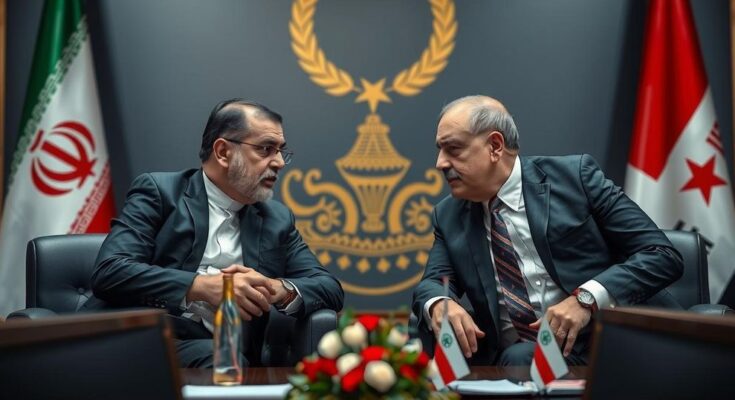Iran’s Foreign Minister’s advisor met with a Syrian delegation in Astana, Kazakhstan, as part of ongoing discussions involving Iran, Russia, and Turkey aimed at resolving the Syrian conflict. The dialogue focuses on enhancing Syrian stability and confronting Israeli actions in the region. Iran also seeks to strengthen ties with Saudi Arabia and Iraq to bolster its regional influence.
The Iranian Foreign Minister’s senior adviser, Ali Asghar Khaji, held a significant meeting with a Syrian delegation in Astana, Kazakhstan, as part of ongoing discussions aimed at shaping Syria’s future. This gathering is part of a series of talks that have been ongoing for six years under the auspices of Iran, Russia, and Turkey, focused on addressing the complexities of the Syrian civil war. With the Syrian regime demonstrating increased control over western Syria, Tehran and Moscow are advocating for reconciliation efforts between Turkey and Damascus. Iran’s commitment to the Astana dialogues is evident, although the level of engagement from Russia and Turkey remains uncertain. The Iranian side utilized this meeting to address regional tensions, particularly those associated with Israel. This convening marks the 22nd round of discussions within the Astana format. Reportedly, during this session, Khaji engaged with Syria’s chief negotiator, emphasizing the strategic partnership between Iran and Syria and discussing ongoing developments in Syria amid escalated regional conflicts, notably those involving Israel. Moreover, Iran is capitalizing on recent diplomatic engagements with Iraqi officials and meetings in Saudi Arabia to unify efforts against Israel and reinforce stability across the region. These collaborative dialogues were initiated in 2017, following the Syrian civil war’s onset in 2011. In conjunction with the Astana talks, Iranian Vice-President Mohammad Reza Aref extended an invitation to Saudi Crown Prince Mohammed bin Salman to visit Tehran, indicating a thawing of relations between the two nations over the past two years. Aref remarked on the prospective benefits of this deepening relationship, positing that it would foster regional cooperation and solidarity among Islamic nations. Additionally, there have been reports of Iraq organizing an Arab summit aimed at addressing regional issues, with a focus on countering Israeli actions and consolidating ties with Iran. This underscores Iran’s strategy of leveraging Iraq as a base for militia operations targeting Israel and strengthening its influence within Arab states.
The ongoing Astana process is a diplomatic initiative involving Iran, Turkey, and Russia, aimed at resolving the Syrian civil war which has persisted since 2011. The complexity of the situation in Syria, marked by various territorial and political struggles, necessitates continued dialogue among key regional players. Iran’s engagement through these discussions seeks to enhance its influence in the region while addressing mutual security concerns and countering Israeli presence. The recent developments regarding Iran’s outreach to Saudi Arabia further illustrate a shift in regional dynamics and potential avenues for collaboration amidst shared adversities.
The recent meeting in Astana represents a pivotal moment in Iranian and Syrian relations amidst a complex regional backdrop. While Iran demonstrates a committed approach to consolidating its partnerships and countering perceived threats, the engagement levels of its partners, particularly Turkey and Russia, are still uncertain. The reported invitation for Saudi Arabia to deepen ties with Iran showcases potential shifts in alliances that may reshape the geopolitical landscape, with ongoing dialogues indicating a concerted effort to confront regional instability and Israeli actions.
Original Source: www.jpost.com




